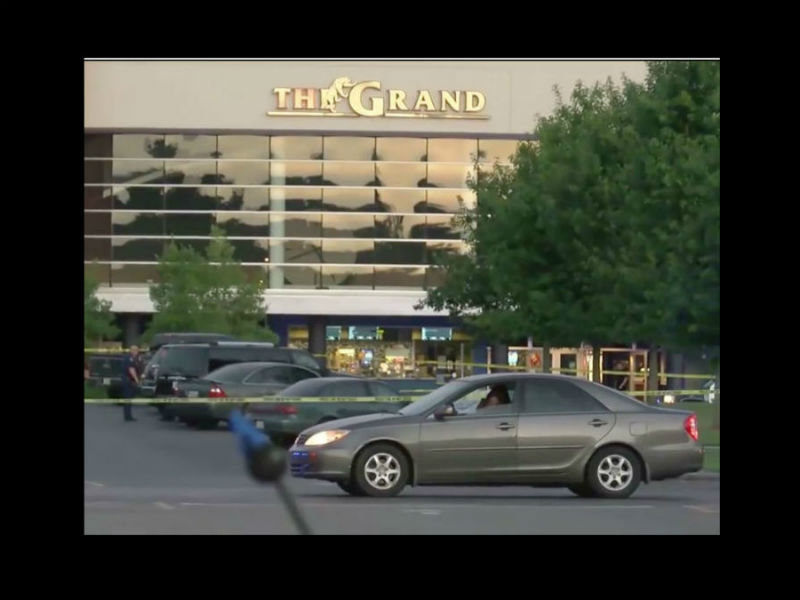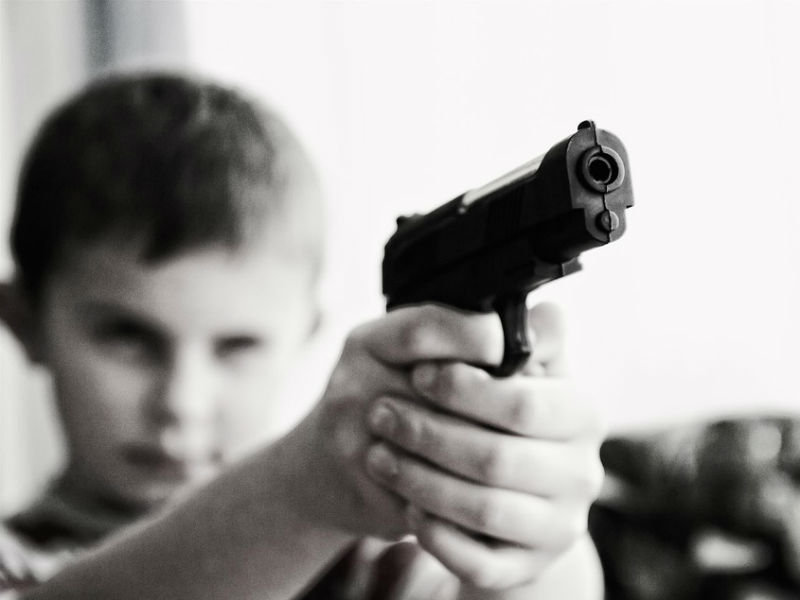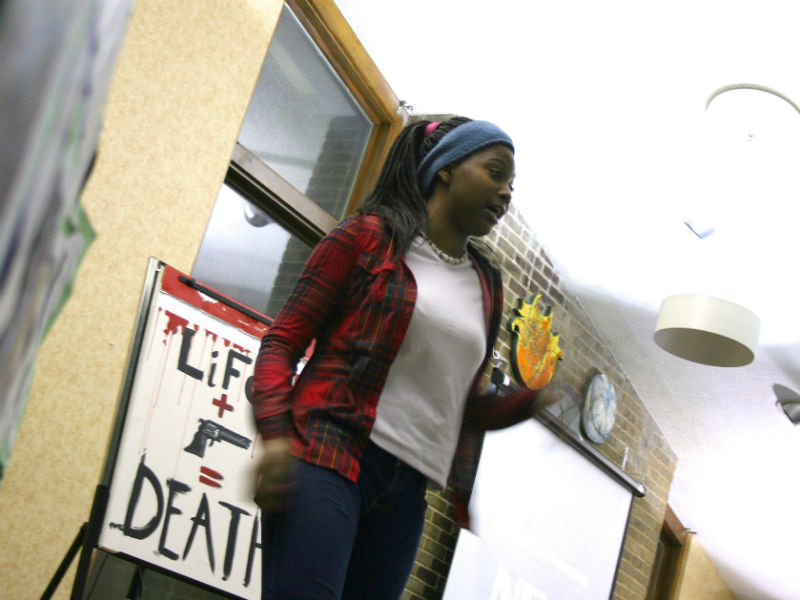The opinions expressed in this piece do not necessarily reflect the opinions of OnMilwaukee.com, its advertisers or editorial staff.
There was another mass shooting incident last week. I realize as I write these words that it doesn't really matter when I'm writing them or, for that matter, when they are published, as they are undoubtedly true; this country seems to suffer a mass shooting incident every time you turn around.
And as always happens with such incidents, after this last one, sensible people were immediately instructed not to politicize the incident by calling for stricter gun control measures. "The bodies are not even cold!" we were told, as if the pace of mass shootings recently has left any time at all for any of the hundred of bodies to cool before the next one happens.
The pro-gun side was quick to jump in, though, with assurances that the shooting in a Lafayette, La. movie theater, was an aberration – one bad guy, one horribly irresponsible gun owner whose actions should not reflect on all the responsible gun owners who have not gone on such rampages.
And besides, read one defense of guns I saw online over the weekend, many more Americans are killed by cars than are murdered with a gun. America doesn't have a gun problem, the argument goes; it has a car problem!
This is perhaps my favorite of all the pro-gun defenses – favorite being in this case a relative term. But I need to be clear about this: I would give just about anything if guns could be licensed, regulated and policed the way automobiles are in this country.
And before we get very far, let me remind you that, in fact, the word "regulated" appears in the Second Amendment. Indeed, it appears long before the word "arms," suggesting the Framers' opinion of the words' relative importance. That we can and should regulate the right to keep and bear arms is not merely written explicitly into the Bill of Rights; it's called "necessary." It is a must. The particular strain of pro-gun sentiment (shared by the conservative majority on the current U.S. Supreme Court, unfortunately) that chooses to ignore this imperative is, in my opinion, at least partially responsible for the epidemic of gun violence in this country.
But let's get back to the argument at hand: that since murder by gun is less common than death by automobile, we ought to be focusing on cars, not on guns. The data is not wrong; about 10.5 people per 100,000 are killed in auto accidents a year while only about 3.5 people are murdered with a gun every year. Yet when you factor in all gun deaths, including accidents and suicides, this year there will likely be more deaths by gun in the U.S. than deaths by car for the first time in history.
This is not simply because gun deaths are increasing, since that rate has not changed that much in recent years. It turns out that mass shootings are occurring more frequently, giving an impression of more gun violence even while the overall rate of gun deaths has ticked up only slowly. We are still well below the peak of gun violence, which spiked in the late 1980s and early 1990s along with all kinds of violent crime. As the overall crime rate fell, so did the rate of gun deaths.
Instead, gun deaths are set to overtake car deaths because right now cars are simply safer than they have ever been. Some other factors have contributed for sure – fewer miles driven since the Great Recession, fewer teenagers on the road – but by and large, the automotive industry has reduced automobile deaths by embracing safety.
Oh, sure, some changes along the way did face serious resistance, mandatory airbags being the most notable one. But today, if you watch TV for any stretch of time, you'll see at least one car company commercial touting the safety ratings of its cars. Despite America's general nostalgia for classic cars, those things were deathtraps. The rate of automobile death is 60 percent lower today than it was in the heyday of 1950s and '60s muscle cars.
While many changes to make cars safer, like side-impact airbags or anti-lock brakes or back-up cameras, came voluntarily, many others came through direct state or federal regulation of the auto industry. We as a country have no problem demanding that the people who make our cars make them safe. When automakers produce unsafe cars, we can fine them or, as individuals, sue for damages. Toyota paid a $1.2 billion fine last year for misleading regulators about safety issues on their cars.
Further, the states and the feds regulate the behavior of drivers and car owners, too. To drive a car, you must pass a test after learning a whole set of complicated rules and procedures for driving your car. You must renew that license periodically. If you want to own a car, you have to keep it registered, and you're taxed to help pay for upkeep of the automobile infrastructure.
You can't drive legally when you're drunk, high or even on certain medications. You have to keep your headlights and brake lights in working order, and you have to use your headlights in the dark and in the rain. You can't exceed safe speeds in particular areas, especially places like neighborhoods or school zones where innocent people are likely to be around your two-ton killing machine. You have to wear your own seatbelt, too, and strap your child safely into a car seat that will help protect them from injury.
It's possible you can be stopped, your car can be impounded and your license can be revoked if you break these laws, even if you haven't hurt or killed anyone yet. That's right: Fatality is not the dividing line between "responsible" car owners and "irresponsible" ones, unlike for gun owners.
I would love love love it if the kind of regulation and scrutiny that comes with car manufacture, ownership and operation also applied to guns. There is nothing close to that level of regulation being applied to gun manufacturers or owners. In fact, the push around the country is to relax gun laws, make it easier for people to own them and carry them around.
The gun lobby regularly defeats attempts to add safety measures to guns, like mandatory trigger locks or "smart gun" technology that prevents guns from being fired by people other than their owners. Pro-gun lobbyists oppose attempts to take the most dangerous guns and ammunition off the market. And don't even think about trying to require background checks on all gun purchases – something gun owners support overwhelmingly, even while the lobbyists acting in their name fight it tooth and nail.
The trend is also away from requiring classes and tests for gun licenses. There's no annual tax or fee to defray the $229 billion annual cost of gun violence. You can legally carry your gun when you're drunk or high – not that you should. You can bring your gun into many places where there are likely to be lots of people around who could be hurt should your gun go off accidentally or purposefully.
And guns, unlike cars, are designed to do just one thing: kill. That we are willing to regulate the mess out of something useful and beneficial like the automobile, but not regulate something that, even when used correctly, is designed only to kill just baffles me.
So please, pro-gun folks, keep making the comparison between cars and guns. This is a discussion I am happy to have any time, how we should apply the same level of regulation to guns as we do to cars.







